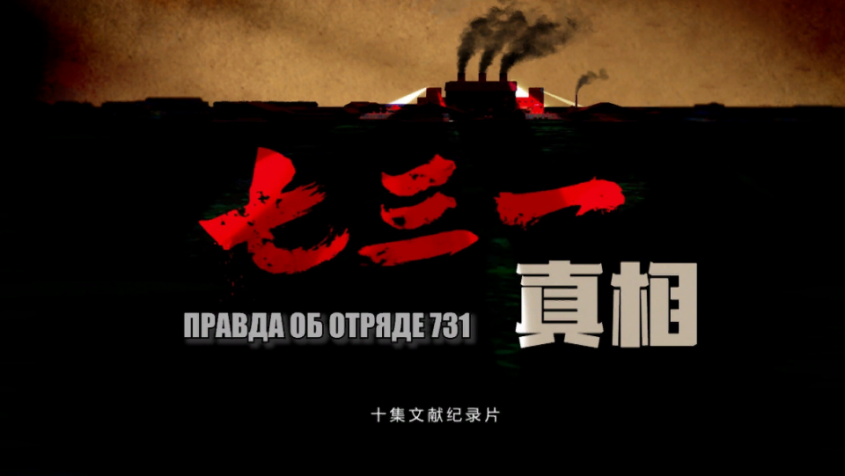
The XVIII International Film Festival “WON TOGETHER” is gaining momentum. Every day, viewers get acquainted with various Russian and world premieres of documentaries that raise topical issues that relate to both modern times and the events of the last century.
Dong Changqing's series “The Truth About Unit 731”, created with the support of the Eurasian Academy of Television and Radio, attempts to reconstruct the events of the past and explore one of the darkest episodes in Chinese history. The series was created on Heilongjiang Television, Harbin and was dedicated to the 75th anniversary of the Khabarovsk trial in 2024.
September 3, 1945 is a significant date for the whole world. On this day Japan surrendered and World War II ended. The day that opened a new page in history. However, both then and now, questions remain that require answers. The thunder of World War II has long subsided, but to this day its echoes can be heard in our lives. The fragments of this monstrous war are being pieced together in small pieces into a single puzzle, which, one day, will allow us to look at those distant events in their real form.
Unit 731 was a secret Japanese military organization that was involved in biological and chemical research during World War II. For military use, new bacteriological weapons were created in its laboratory. The tests took place on people. The organization was known for its cruel, inhumane experiments on three thousand prisoners of war, as well as on civilians. Unit 731 was responsible for the deaths of thousands of people who died both in China and other Asian countries as a result of the spread of diseases such as plague and cholera, typhus and others.
The series focuses its attention on the Khabarovsk trial, which took place on December 25-30, 1949 in Khabarovsk. 12 war criminals of the Japanese Kwantung Army were convicted and sentenced to prison terms ranging from 2 to 25 years, but already in 1956, the Soviet government declared an amnesty for Japanese prisoners, after which they returned home.
Archival recordings made during this trial will form the basis for the creation of the film. The director wants to cause dissonance in the viewer, because - on the one hand, a terrible story appears, devoid of any humanity, which is supported by archival photographs of those on whom the experiments were carried out. Mutilated, emaciated people (they were called “logs”), on whom, according to one of the squad members, they experimented, after which they were treated and experimented on again. This continued until the person died. On the other hand, we hear the confessions of those who are guilty of these crimes and their attempts to justify themselves. Some repent of what they have done, others only state the facts. The picture raises the problem - is there any justification for these people? Is there any justification for those who doomed thousands of people to terrible torment? The viewer must answer this question himself, because in war everything is not as clear as it may seem at first glance. As Neville Chamberlain said: “In war there are no winners, only losers.”
The series traces the history of the squad and its members to the present day. It turns out that many of the data and documents were declassified only recently. Of the squad members, only one is still alive today, and in an interview, he says that he joined the squad very young at the age of 14, and he always wanted to keep this fact of his biography a secret. After the war, he devoted himself to serving people and to this day experiences sincere repentance for his involvement in the detachment. Few of those involved in those events took such a step. Many of them quietly lived out their lives in different parts of the world, without receiving the punishment they deserved.
This is a sad story about people, about criminals and their victims, about truth and lies. In the case of this story, the truth was achieved, but it is difficult to say how many unsolved stories remain to this day. However, this series is a reminder of the past, which should not be repeated again. This is more relevant than ever and is worth listening to. You cannot leave blank spots in history.
Text author: Maxim Petrov
The organizers of the XVIII International Film Festival “WON TOGETHER” are the Eurasian Peoples’ Assembly and the Eurasian Academy of Television and Radio. The festival is held with the support of the Presidential Foundation for Cultural Initiatives, the Ministry of Culture of the Russian Federation and the Administration of the City of Sochi.


